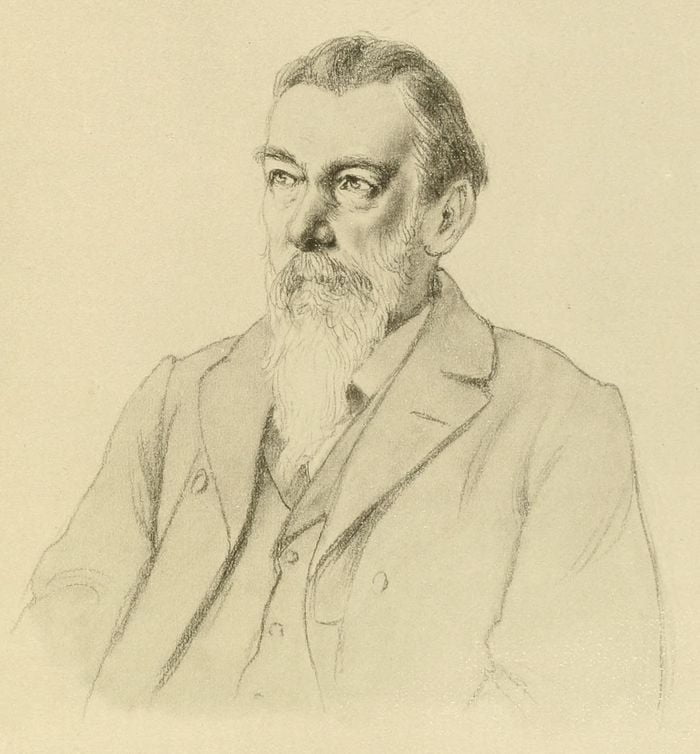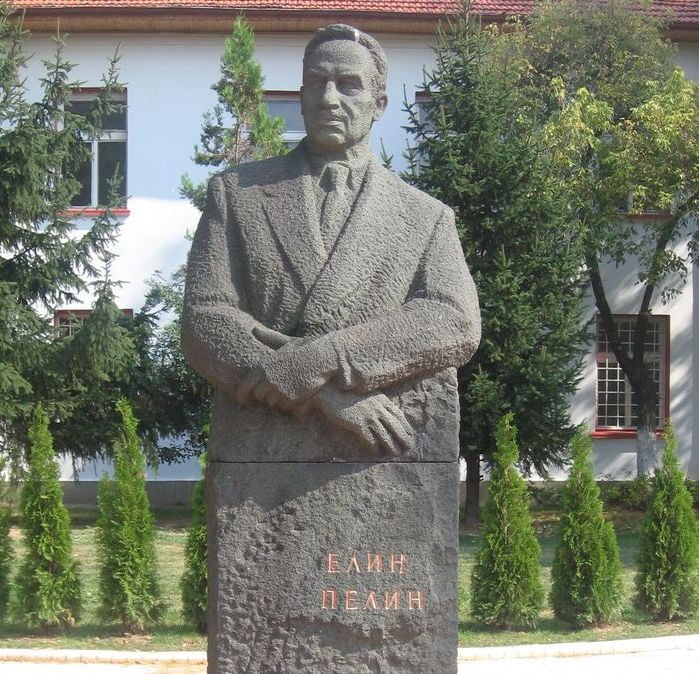Paul Heyse (1830 – 1914)
Heyse was one of the most distinguished and highly respected German writers of the past century. Poet, novelist, dramatist, critic, he “created a new standard of style and artistic finish for the novelette.” The Fury appeared in Heyse`s first collection of stories, which was published in 1855. It is generally regarded as one of the very best stories in the German language.
Reprinted from the volume Tales from the German of Paul Heyse, New York, 1878, D. Appleton & Co., publishers, by whose permission it is here used. The original title is Arrabbiata.
The Fury
The day had scarcely dawned. Over Vesuvius hung one broad gray stripe of mist, stretching across as far as Naples, and darkening all the small towns along the coast. The sea lay calm. Along the shore of the narrow creek that lies beneath the Sorrento cliffs, fishermen and their wives were at work already, some with giant cables drawing their boats to land, with the nets that had been cast the night before, while others were rigging their craft, trimming the sails, or fetching out oars and masts from the great grated vaults that have been built deep into the rocks for shelter to the tackle overnight.
Nowhere an idle hand; even the very aged, who had long given up going to sea, fell into the long chain of those who were hauling in the nets. Here and there, on some flat housetop, an old woman stood and spun, or busied herself about her grandchildren, whom their mother had left to help her husband.
“Do you see, Rachela? Yonder is our padre curato,” said one to a little thing often, who brandished a small spindle by her side;
“Antonio is to row him over to Capri. Madre Santissima! but the reverend signore`s eyes are dull with sleep!” and she waved her hand to a benevolent looking little priest, who was settling himself in the boat, and spreading out upon the bench his carefully tucked up skirts.
The men upon the quay had dropped their work to see their pastor off, who bowed and nodded kindly, right and left.
“What for must he go to Capri, granny?” asked the child. “Have the people there no priest of their own, that they must borrow ours?” “Silly thing!” returned the granny. “Priests they have in plenty— and the most beautiful of churches, and a hermit too, which is more than we have. But there lives a great signora, who once lived here; she was so very ill! Many`s the time our padre had to go and take the Most Holy to her, when they thought she could not live the night.
But with the Blessed Virgin`s help she got strong and well, and was able to bathe every day in the sea. When she went away, she left a fine heap of ducats behind her for our church, and for the poor; and she would not go, they say, until our padre promised to go and see her over there, that she might confess to him as before.
It is quite wonderful, the store she lays by him! Indeed, and we have cause to bless ourselves for having a curato who has gifts enough for an archbishop, and is in such request with all the great folks. The Madonna be with him!” she cried, and waved her hand again, as the boat was about to put from shore.
“Are we to have fair weather, my son?” inquired the little priest, with an anxious look toward Naples.
“The sun is not yet up,” the young man answered; “when he comes, he will easily do for that small trifle of mist.”
“Off with you, then! that we may arrive before the heat.”
Antonio was just reaching for his long oar to shove away the boat, when suddenly he paused, and fixed his eyes upon the summit of the sleep path that leads down from Sorrento to the water. A tall and slender girlish figure had become visible upon the heights, and was now hastily stepping down the stones, waving her handkerchief. She hud a small bundle under her arm, and her dress was mean and poor. Yet she had a distinguished if somewhat savage way of throwing back head, and the dark tress wreathed around it was like a diadem. “What have we to wait for?” inquired the curato.
“There is someone coming who wants to go to Capri—with your permission, padre. We shall not go a whit the slower. It is a slight young thing, but just eighteen.”
At that moment the young girl appeared from behind the wall that bounds the winding path.








